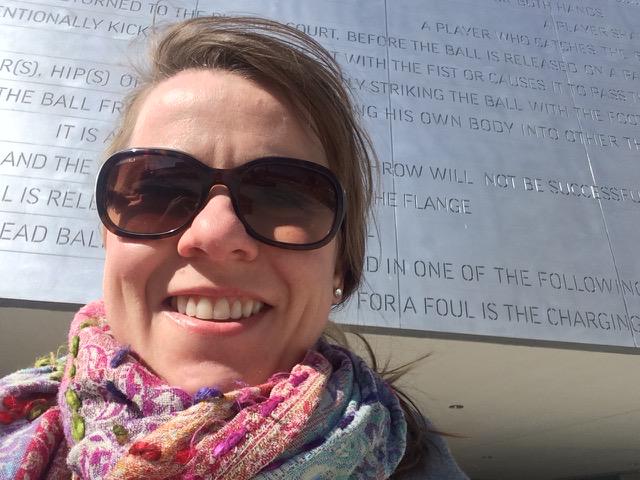Niki den Nieuwenboer from the University of Kansas’ School of Business talks with us about her research on how middle-managers can manipulate organizational structures to coerce their staff into unethical behaviors to inflate both of their apparent performance. Her paper, “Middle Managers and Corruptive Routine Translation: The Social Production of Deceptive Performance,” was published with João Vieira da Cunha and Linda Treviño, in the October 2017 issue of Organization Science.
Websites
- Article in Futurity
- Article KU News
- Reddit conversations about her article
- “(Un)Ethical Behavior in Organizations” (article)
Hosts / Producers
Doug Leigh & Ryan Watkins
How to Cite
Leigh, D., Watkins, R., & Nieuwenboer, N. den.. (2018, February 6). Parsing Science – Creating Deceptive Performance. figshare. https://doi.org/10.6084/m9.figshare.5915413.v2
Music
What’s The Angle? by Shane Ivers



Lastly, Doug and I asked Niki what she sees as big takeaways of her study ... both to the field of business management, as well as to those who provide leadership within large organizations.@rwatkins says:
Ryan and I were also curious to know what advice Niki would have for upper management to curtail unethical behavior among middle managers and line employees.@rwatkins says:
Along with João Cunha, Niki co-authored her paper with Linda Treviño, a Distinguished Professor of Organizational Behavior and Ethics with Penn State's College of Business. Niki talked with us about the influence that Linda's 30 years of experience with business science scholarship brought to the study.@rwatkins says:
After recent revelations that Wells Fargo routinely opened phony customer accounts and sold insurance to customers who did not have to have it, the company is again back in the news. Most recently, it's because of The Federal Reserve's decision to cap the bank's growth until The Fed is "satisfied" that it has cleaned up its act. We wondered what Niki thinks that behavior such as Wells Fargo's says about people's willingness to engage in unethical behavior.@rwatkins says:
Surprisingly, though they benefited from the deception, more than a few employees in Desk Sales resisted middle managers plans to game the system at Teleorg. Middle Manager, however, saw this merely as another constraint to overcome, as Niki explains next. @rwatkins says:
We were interested in hearing what kinds of behaviors Desk Sales employees engaged in, as well as the extent to which other departments were complicit in their deceptions.@rwatkins says:
Niki defines "corruptive routine translation" as a process in which middle managers identify structural vulnerabilities in the organization which they exploit to create and enforce a lower level routine that both enables and sustains deceptive performance among their subordinates. We wanted to learn how this routinization of deception comes about in the first place.@rwatkins says:
We asked Niki about the setting in which João's data were collected, including how it was structured, and what the responsibilities of its various departments were.@rwatkins says:
Niki's study uses data previously collected by João Cunha, a Portugese-born researcher now working in France. His earlier research involved an ethnographic study of the sales staff within a large telecommunications firm. Doug and I were interested in hearing how they developed the idea to examine evidence of deception present in João's dataset.@rwatkins says:
Niki's study set out to understand work routines, specifically those involving middle managers translation of upper management's directives into line employees' performance expectations. Ryan and I wondered how such misinterpretations - which she calls "corruptive routine translation" - come about.